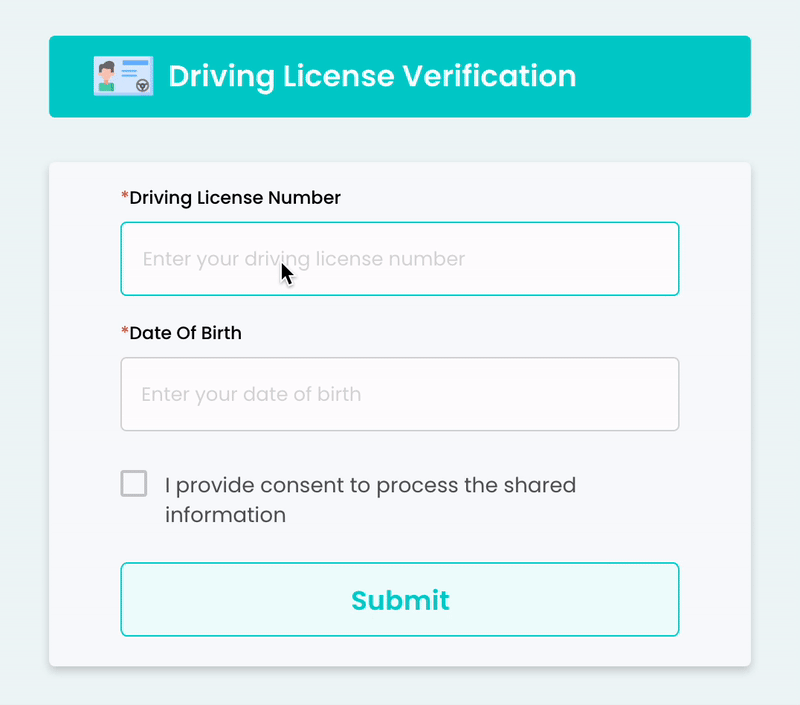The Future of Vehicle Authentication: Exploring RC Number Check APIs and Their Impact
In a world where technology is rapidly advancing, the authentication of vehicles has become a critical concern. With the rise of car thefts and fraudulent activities related to vehicles, ensuring the authenticity of vehicle information has become more important than ever. Traditional methods of verifying vehicle details through physical documents are no longer sufficient in today’s digital age. Instead, the future lies in leveraging advanced technologies such as RC Number Check APIs to streamline the process and enhance security measures.
Table of Contents
Introduction
The advent of RC (Registration Certificate) Number Check APIs marks a significant milestone in the realm of vehicle authentication. These APIs enable individuals and organizations to verify the authenticity of vehicle details swiftly and conveniently through online platforms. By simply entering the RC number, users can access comprehensive information about a vehicle, including its registration status, owner details, and other relevant data. This article delves into the potential of RC Number Check APIs and their implications for the future of vehicle authentication.
Understanding RC Number Check
RC Number Check refers to the process of verifying vehicle details using the Registration Certificate number assigned to every registered vehicle. The RC number serves as a unique identifier for each vehicle, containing vital information such as the registration number, chassis number, engine number, owner details, and registration validity. Traditionally, individuals had to rely on physical documents or visit regional transport offices to obtain this information. However, with the emergence of RC Number Check APIs, the process has been digitized, offering a more efficient and accessible solution.

The Emergence of Check RC Details APIs
The increasing digitization of processes across various sectors has paved the way for Check RC Details APIs. These APIs leverage sophisticated algorithms and databases to provide real-time access to vehicle information. By integrating these APIs into online platforms and mobile applications, users can perform RC checks with ease, eliminating the need for manual verification methods. This not only saves time and effort but also enhances the accuracy and reliability of the authentication process.
Benefits of Online RC Verification
The adoption of online RC verification through APIs offers several benefits for both individuals and organizations:
Convenience: Users can verify vehicle details anytime, anywhere, with just a few clicks, eliminating the need for physical visits or paperwork.
Speed: RC Number Check APIs provide instant access to information, allowing for swift verification of vehicle authenticity.
Accuracy: By tapping into centralized databases, online RC verification ensures the accuracy and reliability of the information retrieved, reducing the risk of errors or discrepancies.
Enhanced Security: With built-in authentication measures and encryption protocols, online RC verification platforms prioritize data security and protect user privacy.
Cost-effectiveness: Eliminating the need for manual verification processes saves both time and resources for individuals and organizations alike.
Applications of RC Number Check APIs
The applications of RC Number Check APIs extend across various sectors and industries:
Law Enforcement: Police departments and law enforcement agencies can use RC Number verification APIs to quickly verify vehicle details during routine checks, investigations, or traffic violations.
Insurance: Insurance companies can streamline the process of verifying vehicle information for policy issuance, claims processing, and risk assessment, thereby improving operational efficiency.
Automotive Industry: Car dealerships, manufacturers, and service centers can integrate RC Number Verification APIs into their systems to validate vehicle details during sales, servicing, or warranty claims.
Transportation and Logistics: Logistics companies can leverage RC Number Check APIs to verify the authenticity of vehicles used for transportation, ensuring compliance with regulations and enhancing cargo security.
Government Services: Government agencies responsible for vehicle registration and regulation can utilize RC Number Check APIs to facilitate citizen services, improve regulatory compliance, and combat vehicle-related crimes.

Challenges and Considerations
While RC Number Check APIs offer numerous advantages, there are certain challenges and considerations to address:
Data Privacy: Ensuring the security and confidentiality of user data is paramount to prevent misuse or unauthorized access to sensitive information.
Data Accuracy: While APIs rely on centralized databases, ensuring the accuracy and integrity of the data retrieved is crucial to avoid misinformation or discrepancies.
Integration Complexity: Integrating RC Number Verification APIs into existing systems or platforms may require technical expertise and resources, posing a challenge for some organizations.
Regulatory Compliance: Adhering to relevant regulations and standards governing data privacy and vehicle authentication is essential to avoid legal implications.
User Awareness: Educating users about the availability and benefits of online RC verification platforms is crucial to encourage adoption and usage.
The Future Outlook
As technology continues to evolve, the future of vehicle authentication holds immense potential. The widespread adoption of RC verification APIs is expected to revolutionize the way vehicle details are verified and authenticated. With advancements in artificial intelligence, machine learning, and blockchain technology, the authentication process will become even more robust, secure, and efficient. Moreover, the integration of IoT (Internet of Things) devices and smart sensors into vehicles will enable real-time monitoring and tracking, further enhancing security measures.
Conclusion
In conclusion, the emergence of RC Number Check APIs signifies a paradigm shift in the authentication of vehicles. By leveraging the power of technology, individuals and organizations can verify vehicle details swiftly, accurately, and securely through online platforms. The benefits of online RC verification extend across various sectors, offering convenience, speed, accuracy, and enhanced security. While certain challenges exist, the future outlook for vehicle authentication is promising, driven by continuous innovation and technological advancements. As we embrace the digital era, the adoption of RC Number Check APIs will play a pivotal role in shaping the future of vehicle authentication and ensuring a safer and more secure automotive ecosystem.

